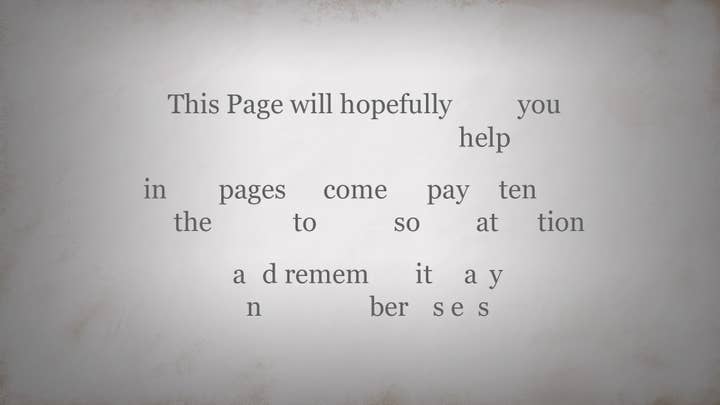Lowtek on tackling dyslexia in games
Alastair Low talks dyslexia-friendly options in the industry and working on his own solution to make games more accessible to dyslexic players
The discussion around accessibility has been progressing rapidly in the past couple of years. While AAA and indies alike are slowly embracing more robust features for a wider range of abilities, dyslexia is one issue that remains largely ignored or little-known despite being fairly common.
In the UK, around 10% of the population has dyslexia according to the latest official figures, representing 6.3 million people. The European Dyslexia Association estimates that between 5% and 12% of the global population is affected by dyslexia.
Lowtek's founder Alastair Low, dyslexic himself, has been working tirelessly to educate the games industry about the impact of dyslexia. A couple of weeks ago, Low won a Scottish Games Award for Dislectek, his Unity plugin that lets developers add dyslexic-friendly text-to-speech options in their games. His tech was also nominated for a TIGA Award last week.
"It's a universal thing that allows you to do text-to-speech in your games if you're using the default Unity text or TextMeshPro," Low tells GamesIndustry.biz. "It just grabs the actual text from anywhere on the screen – it pauses the game, it lets you click anywhere and then reads the text. It uses your native operating system’s text thing, so it's really lightweight. And if you're used to using screen readers, you can use voices that you already know, you can change the rate, there's a whole bunch of settings you can change."

Having previously spent over seven years as an artist and animator at Bloons developer Ninja Kiwi, Low created his company during the pandemic.
"I'd been wanting to do it for years, when I was at uni, and then just got comfy for a bit. I was getting a bit bored, and it was during COVID, so I was like, 'I might as well quit now, because I won't be going to the restaurants or anything, so I can kind of save money'," he laughs.
At that time, Low had just started working on Dislectek and had just completed a successful Kickstarter for Flea, a platformer meant for the NES which has since launched. He also had released A Familiar Fairytale: Dyslexic Text Based Adventure, an experimental project meant to show people the frustration that comes with being dyslexic.
"[It was] less 'this is what we see' and more to show how it feels," he explains. "And it did really do that because I went to events to show it off and it was cool seeing parents read it, and read really slowly, and then kids' eyes lighting up and saying 'That's how I read!' Sometimes the parents would burst into tears because they understood.
"For anyone who actually played it, they were like, 'Yeah I get it now'. But this is a hard sell as a game because it's more kind of an experience thing… It is a game but it's not a commercial game, it's not going to get me any money. Because it's a game that's like literally out there to frustrate you, and not in a good way."
Low points to an article from Kotaku editor John Walker on his blog Buried Treasure, explaining the frustration he's felt after a few chapters of A Familiar Fairytale, and how he was ready to give up.
"Which is the point," Low says. "If you were dyslexic you would give up as well, wouldn't you? I don't know how many people have seen the end of the game..."
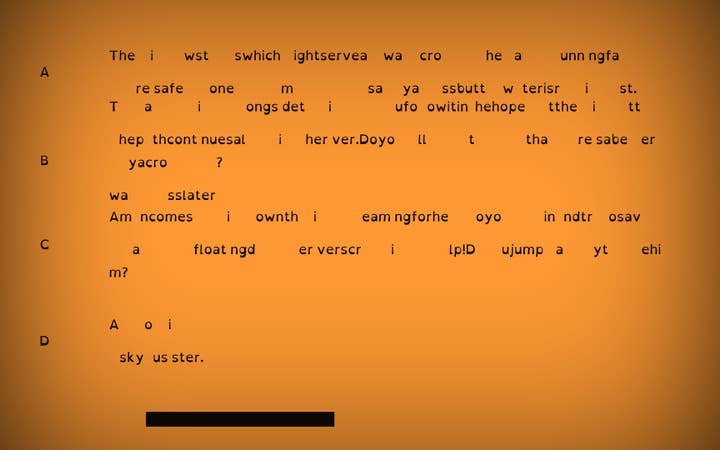
Low's dyslexia has of course shaped the type of games he's making. He mentions that his interest in making what he calls "old games" (he released Tapeworm Disco Puzzle and Flea on NES, and ported them to Dreamcast before they launched on current-gen platforms) also comes from the fact most of these games are simpler and don't have or need much text.
He's also been involved in developing, and adapting some of its games, for Playdate, and is currently working on a puzzle platformer called Playhead, a game set in an online media player that players can rewind and fast forward. And he says he wouldn't be against doing another educational game, "maybe a bit more polished than A Familiar Fairytale," he shares.
"I would try to make it more commercially viable but I don't know what I would need to do to do that. I do see it more as just creating more games that are just dyslexia-friendly. Dyslexic people should enjoy puzzly things, or things about gameplay more than reading.
"And I do really want the accessibility tools I'm developing to take off. But I think that's somehow a really hard sell as well. There's been a few people [using Dislectek], but there's been no big games using it."
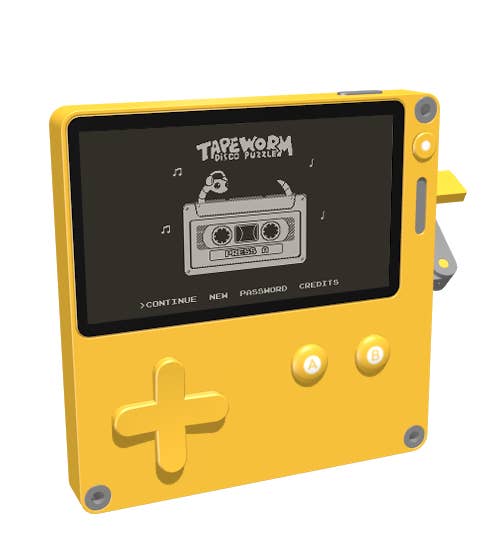
Currently, the only dyslexia-friendly accessibility option that's been widely publicised is the use of specific fonts that are supposed to make it easier for a dyslexic person to read. But during a Develop:Brighton talk earlier this year, Low had pointed out that they don't always hit the mark for dyslexic people.
"That was really the thing that started me on the journey of, 'I need to show that this doesn't work'," he tells us. "And even when I was developing A Familiar Fairytale, this was to show the issues that we face, and one of the options in A Familiar Fairytale is to add those fonts. And like I said in the presentation, it didn't make any difference. And there have been a few studies that say that it has little to no effect. For some people it makes it worse."
Low acknowledges that the fonts have been made in good faith by "someone trying to do good" and appreciates the fact they're open source.
"They're trying, what they were saying makes sense, but in practice…" he trails off. "I don't know how well tested it was, and there might have been some confirmation bias in there. It may be because of other syndromes, like Irlen syndrome or specific sensitivity specifically – it's the visual noise that those fonts really don't help with. Some people do swear by them but in general the people that I have spoken to don't seem to like it."
Issues facing dyslexic people playing games come down to reading any type of text, Low says, but the problem is multi-faceted and reaches wider than most people typically envision.
"There's so many games that have quite a lot of dialogue and just not being able to read that is really bad," Low says. "I can read but I can't read quickly, so it's really not enjoyable, and it's really hard to comprehend words, and what's going on.
"So even if you've got lots of little text boxes with a sentence each in them, it becomes really tiring really quickly, and if it's more than like a couple of sentences, I get to a point where I just give up and I feel a lot of other dyslexic players are exactly in the same boat. Especially if it's going to be a story heavy game, I'll just skip through.
"Then [there's] other stuff like item descriptions in games like Dark Souls. Those are really important, some things can tell you the special effects and you just don't get to see that. You need to look up at a wiki or whatever and just trust the people online. Quest objectives are really annoying [as well]."
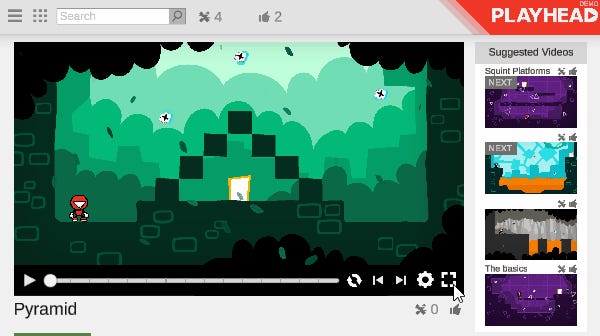
Text-to-speech remains the primary solution that Low sees as a way to make games more accessible to dyslexic players. And it needs to encompass the entirety of the game, UI included.
"Even some games that are voiced, menus and stuff still won't be voiced, or large passages of text. And just a way to be able to read that – it doesn't need to be high quality, they could render it as a robotic voice and it would help the people it needs to."
He also mentions the possibility to have text available in "dyslexic English" (assuming your native language is English here), which he describes as a language thought specifically with dyslexia in mind to make it simpler, with "none of the extra stuff."
"Game making is one of the most complex software things that you'll ever have to do; it's really hard to simplify that"
"Text-to-speech is really hard to implement though, that's the problem," he continues, though he does mention some good examples in recent games, including The Last of Us Part 2 and Assassin's Creed Valhalla.
"Last of Us Part 2 did a good [job]. I had just released Dislectek and that was the first one where I was like, 'Yes, I'm doing something right'! This is one of the things that prove that [people] want this."
Dyslexia doesn't only impact one's ability to play games, but also their ability to work in games. We ask Low whether engine makers such as Epic Games and Unity have things in place to make their tools more accessible.
"It's a really weird one because game making is one of the most complex software things that you'll ever have to do; it's really hard to simplify that," he answers, adding that Unreal has text-to-speech options for its menus though, and that there are engines relying on visual coding.
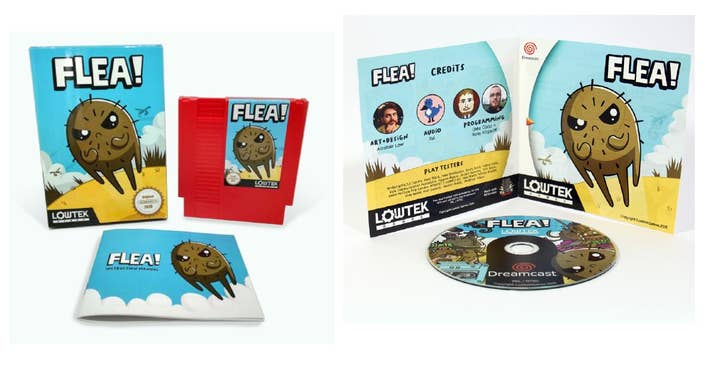
"In some places, I think it confuses everyone, but they use similar terminologies for different parts of the software. You get 'animation', 'animator' and a few different variations but they're all different systems. It annoys me, but I'm sure it annoys everyone else as well, and not even just dyslexic people."
Low says he wishes there would be more user-friendly documentation for dyslexic people in games, adding that YouTube has been an invaluable resource to have visual presentations of documentation and tutorials, for instance.
"So yes, if the people making any engines could also do really to-the-point video tutorial documentary things, that would be really cool, and just about specific things and actually link it in the docs. That would be really good. You can use text-to-speech in the doc but if it's a big passage, it becomes really overwhelming."
"It does come down to the platform holders to make it easier to do text-to-speech in games"
He mentions again how dyslexia-friendly fonts have widely been seen as the golden solution for everything and how far from the truth that is. As always with accessibility, it's a spectrum and there will never be a catch-all solution, one option helping someone but potentially hindering someone else, Low says.
"It was definitely the industry advice of the time to just use a font swap, which very much annoyed me, and that's why I'm trying to make changes," he continues. "That's the whole thing, I just want to make some change in the industry. If someone else picks my idea and runs with it, I'm happy. As long as [it's done].
"I think we're at the start of the conversation. I think Unity or some middleware is going to come up with a thing that helps with a whole bunch of accessibility stuff, and it's going to become commonplace. And the same interfaces between different games are [going to be] more standardised. But we're just at the start of that and it's just who's going to get that slice of pie and how well is it going to do. I think it does come down to the platform holders to make it easier to do text-to-speech in games."
